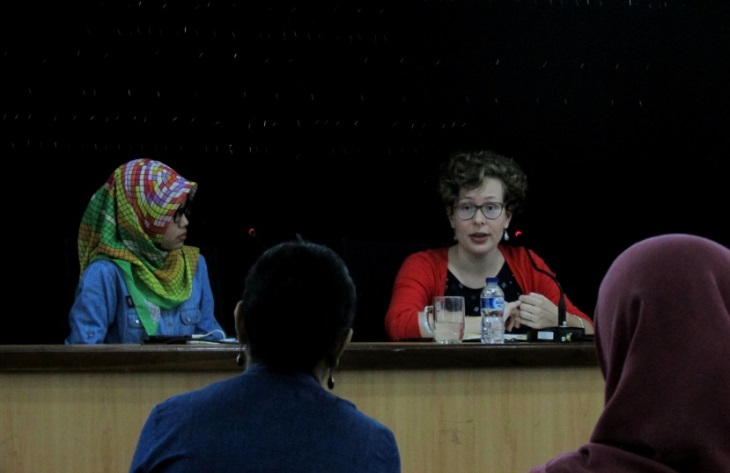
Colonial education was always synonymous with ethical politics. A policy of repaying the colony’s land, rather than previously exploiting it. This resulted in historiography discussing colonial education always focused on the government. That education cannot be born without government intervention – the Dutch East Indies. This was stated by Kirsten Kamphius in a seminar entitled ‘Our Girls’: Taman Siswa as an example Gendered education in the Netherland Indies 1922-1942, on Wednesday (19/7) in the Multimedia Room of the Margono Building, FIB UGM.
Kirsten argues that with so much emphasis on the role of government in educational historiography, it has the potential to leave little room for other themes. Therefore, in an effort to oppose the idea that colonial education was merely a matter of governance, he then examined the experiences of girls during the colonial period. “In this study, I tried to analyze education but focused on the education of girls in four regions of the Dutch East Indies between 1880 and 1940,” he explained.
To see the development of girls’ education in the Dutch East Indies colony, on that occasion Kirsten used the example of Taman Siswa as an object of research. “Why is Taman Siswa so important?” said Kirsten.
Besides being the foundation for the birth of education, the student park also has a unique curriculum. Taman Siswa teaches a curriculum on gender understanding for its students. In his presentation, Kirsten quoted Ni Soelasmi’s work in Children’s Education (1933), explaining that boys who are educated with girls will receive subtlety and politeness. On the other hand, girls will also receive feelings of courage and modesty from boys.
Taman Siswa as an educational institution places itself as a family. In turn, he has his own foundation for his students, including for female students. One of them is illustrated by Nji Mangoensarkoro’s writing entitled Kedoedoekan wanita dalam keluarga Taman Siswa (1934). Kirsten by quoting Nji Mangoensarkoro explained, “According to Taman Siswa, the most important thing for women is to be a mother. All the qualities and skills of a good woman are the conditions for carrying out the obligations of a mother as a perfect educator,” she concluded.
